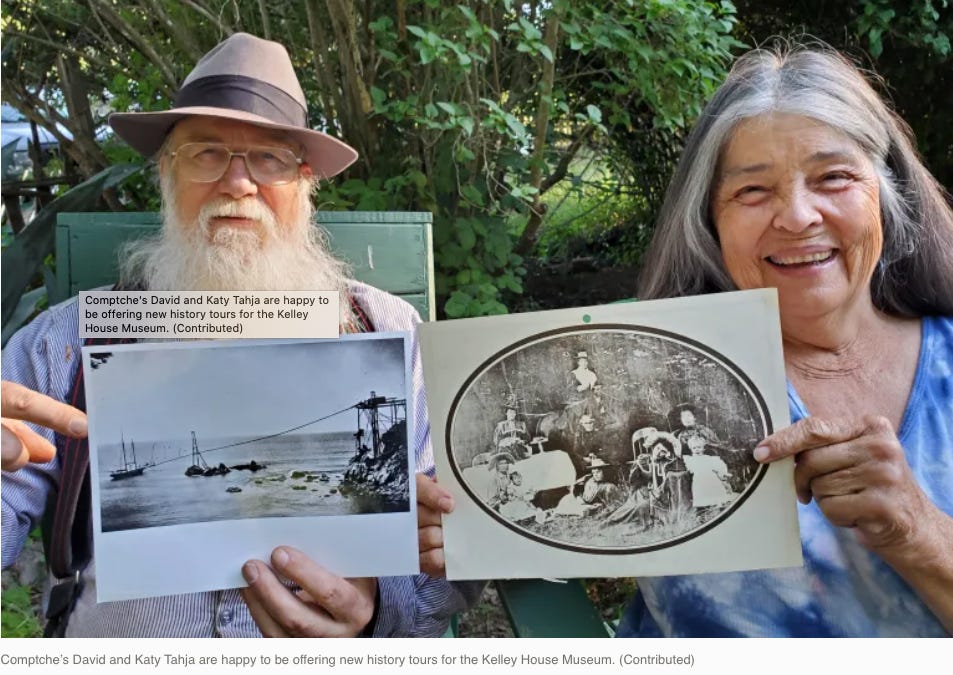
Katy Tahja wrote an article for The Anderson Valley Advertiser in August 2014 to promote a community presentation of my research. She includes a note about the event described in the previous post, 7.1.
Tahja’s regional research, historical publications, and deep local knowledge are included in this project. She read my thesis and wrote this concise summary:
“It’s not often a tiny town on the Mendocino Coast becomes the focus of an anthropologist writing a masters thesis but that’s what happened in Comptche. Finding Common Ground is Lisa Gruwell Spicer’s in-depth look at the back-to-the-land hippie immigration into Comptche in the 1970’s. She will share her stories August 24 at 4 p.m. in the Kelley House Museum at A Sunday Afternoon with Lisa Spicer.
Spicer arrived in Comptche in a purple school bus with her mom and three sisters and attended Mendocino Elementary School, then Mendocino High. She experienced much of what she writes about.
Returning to the coast for her 30th high school reunion in 2008, she was surprised at how unchanged Comptche was and wondered what made the community so cohesive. She moved back for a year and started interviewing the old timers and the reformed hippies who are becoming the new generation of old timers.
In the early 70s, immigrants (hippies) brought conflict and new ideas to Comptche. How was a Finnish old timer to react when “we’d go down to our favorite swimming hole and there were a bunch of nudies down there?” But some of the ideas the newcomers brought, like consensus thinking, were useful. When the County mandated Comptche Town Plan, as a part of the County General Plan, was discussed for four years beginning in 1974, the Comptche Advisory Committee (CAC) was elected from people who volunteered to serve. All of a sudden longhairs and rednecks were sitting at the same table discussing what needed to be done to keep Comptche as it was.
The term ‘rural commons’ wasn’t used back then, but today it refers to shared values and common areas of concern. Underneath physical appearance and varying levels of education the towns folk had a common goal: keeping the area resilient and the environment livable. Working together in the CAC, or Comptche Volunteer Fire Department, or volunteering to help make organic lunch at the Comptche School, made Comptche a fun place to live.
Spicer will share her insights into her research. Did you know there were three kinds of hippies? She’ll explain. Is anyone else studying the back-to-the-land movement? Can hippies be seen as an evolving ethnic group? Come hear what she has to say. Special invitations go out to hippies, ex-hippies, and like Spicer, the children of hippies, to attend this event. If unable to attend this event you can read her thesis in the Kelley House Library.
When Spicer shared her thesis publication in a discussion in the Comptche Community Hall the room was roaring with laughter. Set aside August 24 at the Kelley House Museum for A Sunday Afternoon with Lisa Spicer. Donations requested.”
Written by Katy Tahja, Comptche-based historian, for publication in The Anderson Valley Advertiser. August, 2014.



